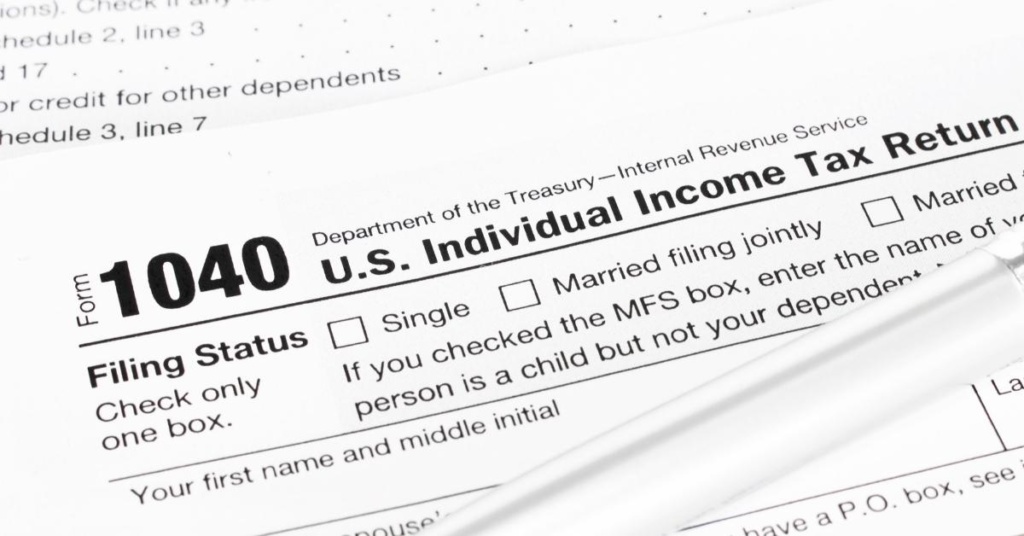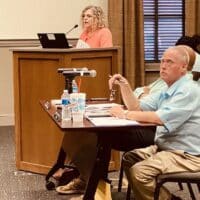For some rural residents, not filing a tax return this year could cost them more than $6,000.
Changes to the Earned Income Tax Credit (EITC) as part of the COVID-19 pandemic relief efforts mean that more people are eligible for the tax credit, and more money is due back to tax filers as part of the credit.

But to get the money, people have to file a tax return, even if they weren’t eligible in previous years. Making Americans aware of the change is the goal of a nationwide campaign called Get It Back.
As part of the American Rescue Plan (ARP), changes to the EITC made some 17 million more Americans eligible for the tax credit. Previously, the EITC was available to families with children and childless individuals age 25 and up. The ARP temporarily extended the eligibility to childless workers age 19 and up, and workers 65 and older. The credit was also extended to homeless young adults 18 and up and to young adults transitioning out of foster care. Additionally, it raised the income limits to qualify from just under $16,000 to $21,000.
The expansion will make a big difference for working young adults. Nearly 5 million young people between 19 and 24 will benefit from the expansion, as well as 21% of workers without children in rural areas, according to the Center on Budget and Policy Priorities (CBPP) report.
That credit, said Roxy Cains, Earned Income Tax Credit Outreach campaign director with the CBPP, can lift people out of poverty.
Previously, she said, the EITC was so small and eligibility so limited that the tax code literally taxed 5.8 million low-wage workers into poverty. This temporary change, she said, does the opposite.
Additionally, because the credit has nearly tripled, it is a bigger incentive for those low-income workers to file their taxes.
The problem is reaching those people.
According to IRS estimates from 2016, only 80 to 85% of the people eligible for the EITC for families with children claim it, and an even smaller percentage of working adults without children (about 65%) ever claim it.
Cains said the “Get It Back” national campaign provides grassroots organizations in rural areas with the tools and funding they need to reach rural residents.
Getting them to file their taxes is the first hurdle, said Dean Williamson, economic development director at Human Resources District Council (HRDC) IX in Bozeman, Montana. Williamson said the HRDC works with residents in his area to assist with their economic stability and self-sufficiency, including financial coaching and tax filing. While his organization sees filing taxes as a part of their clients’ financial stability, some of their clients may not think the same way.
“There’s maybe just some assumption that they didn’t make enough money, and that it isn’t worth it,” he said. “But around here, anyway, there’s some suspicion in all federal programs Are they going to track me? Are they going to be taking more money than they should?”
While reaching people in rural areas is difficult, he said, because his organization has been around for 45 years, it is able to use its reputation to reach them.
“We do have a lot of repeat customers because of our age and mainly, I think it’s really because we’ve built sort of one-on-one relationships,” he said.
Jennifer Graybill with the Carroll County Community Action Agency in Carroll County, Maryland, said the money can make the difference between surviving and thriving for families. The EITC credit can mean as much as $6,700 for a family with four children.
“We take for granted our tax returns,” she said. “For our working poor families – it gives them an incentive to work. Because the family that is struggling, making barely minimum wage to put a roof over their head, at the end of the year, that return is what lifts them out of poverty. It’s what makes it worth working and that bit of money, it’s a game-changer for our families.”
That return, she said, is the down payment on a car, or catching up on utilities, or school clothes. In some cases, she said, it’s the first time these families ever put money in savings or put money aside for their children to go to college.
You can find help with filing your taxes for free at taxoutreach.org. Among others, the website provides information on Volunteer Income Tax Assistance (VITA) and Tax-Aide sites which offer free and reliable tax filing services.






